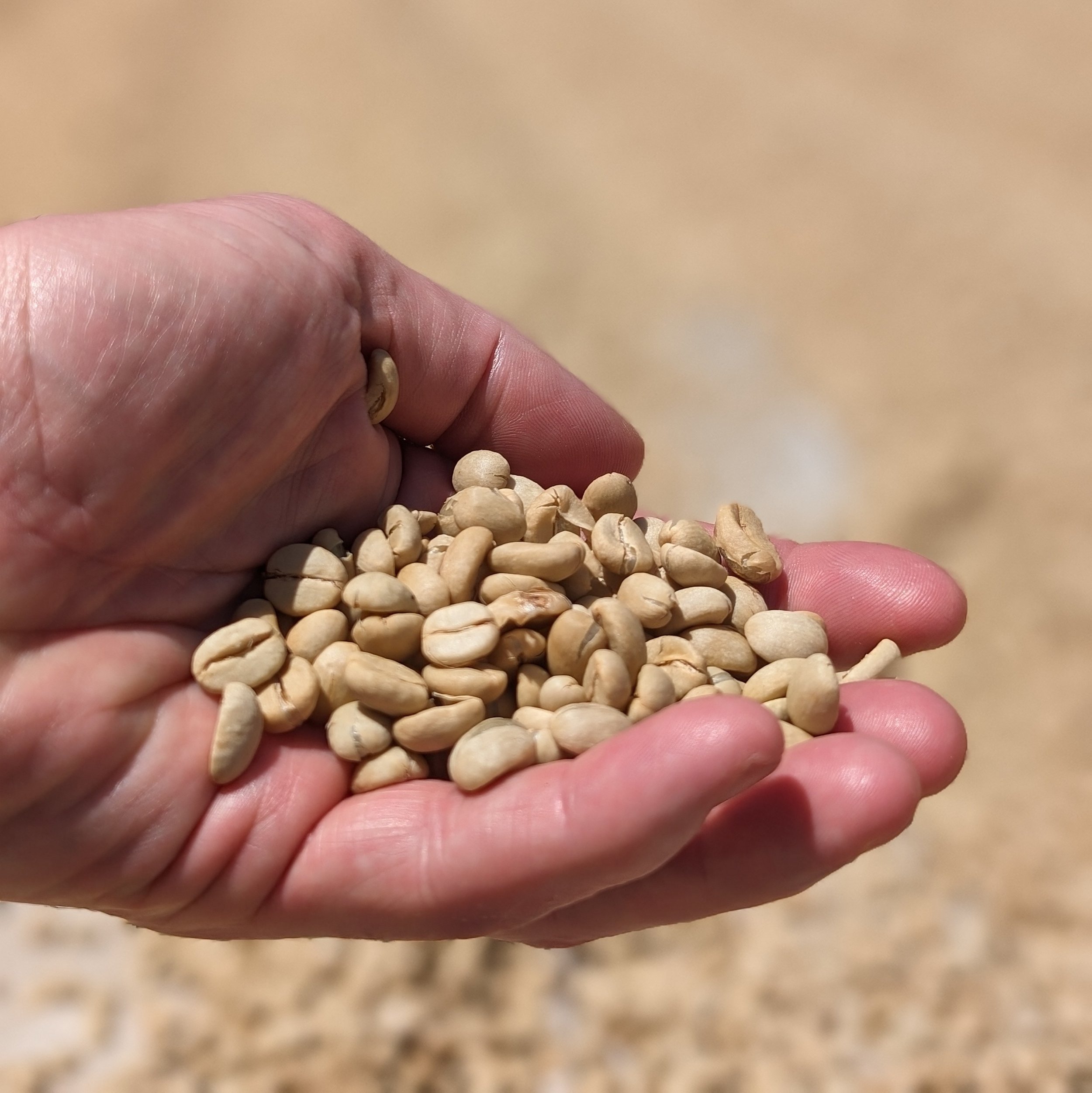Artwork Credit: Sam Landsberg
We’re pumped to bring you our first Bolivian coffee. This smells of beautiful cherries and floral notes. Brew however you desire, but espresso is pretty amazing.
Finca Rosita spans 32 acres in the Illimani community of Caranavi. It is named in the memory of the Valverde-Aramayo family’s matriarch, Rosa Angelica Aramayo. The name Caranavi is from quechua, meaning “peaceful place with a good view.” This community is located near the base of the Illimani (“where the sun rises” in Aymara) mountain. With a height of 6,462 masl, this mountain is made up of 4 peaks and is the second highest mountain in the Bolivian Andes. Snow from the Illimani mountain forms all the rivers and lagoons that provide water to the nearby towns. Because of its altitude, his region has extreme climates that change in a matter of hours, from below zero to tropical with temperatures between 19 and 30 degrees Celsius. Likewise, the vegetation also changes rapidly, from large plantations of potatoes and quinoa to many hectares of coffee, plantain, yucca and others. These and other peculiarities of the Andean terrain create the complexity and differentiation of the Bolivian coffee.
Caranavi became known for coffee production in the 1960’s, following Bolivia’s agricultural reform, and coffee exporting peaked in the 1990’s with heavy investment and interest from the private sector. Throughout the 90’s, coffee production was focused on volume over quality. In the early aughts, significant investments were made by international development agencies, including the United States Agency for International Development (USAID), to focus on the production of quality coffee as an alternative to coca production. Funds were directed toward coffee infrastructure such as processing plants, producers received training on Good Agricultural Practices, and coffee production became much more technified and developed. Most of these agencies are no longer operating in Caranavi, although the German development agency GIZ and some Northern European non-profit agencies and foundations continue to work with coffee producers. More recently, the Municipality of Caranavi and Bolivia’s central government have invested to incentivize coffee production through coffee quality competitions, and the Ministry of Rural Development also had a seedling program, referred to as “El Programa,” which sold coffee seedlings at heavily subsidized rates to encourage coffee production.
This is now our third consecutive year to bring you Bolivian specialty coffee, through our partnership with Red Fox Coffee Merchants. We thrive on finding some of the most underrepresented specialty coffee producing origins in the world, and we know this one will not disappoint.





























